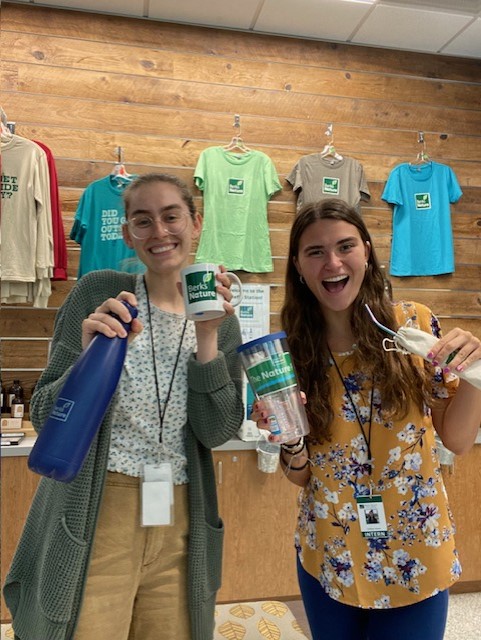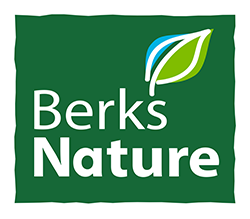Single-use plastics. We all love and hate them: plastic bags, water bottles, utensils, coffee cups, plates, soda bottles, red SOLO cups, straws, etc., etc. They make our lives easy because they are convenient in the moment. Humans as a whole use approximately 1.2 million plastic bottles per minute. Single-use plastic is consuming the world, both literally and figuratively.
With studies finding that we could be ingesting up to a credit card’s worth of plastic a week, it is our duty to reduce consumption of single-use plastics — before reaching a level of plastic pollution we cannot recover from. In an effort to be mindful of our plastic use, Berks Nature is joining the Plastic Free July movement.
Plastic Free July is an initiative of the Plastic Free Foundation. It encourages limiting the use of single-use plastic in hopes of eliminating plastic waste. Holding ourselves accountable for our plastic consumption is important to not only the health of our planet, but to the health of ourselves and others.
As easy as it is to use single-use plastic, it is impossible to adequately degrade them. The same properties that make plastic so appealing, also make it extremely harmful to humans and the environment. One plastic bag can take over 1,000 years to degrade, but they photo-degrade, breaking into a thousand tiny pieces called microplastics.
These microplastics enter the human body through inhalation, absorption, and consumption, causing lifelong health issues. As mentioned in the International Journal of Environmental Research and Public Health, exposure to microplastics result in an increase in the risk of hormonal cancers, reproductive problems, metabolic disorders, asthma, and neurodevelopmental conditions.
Although being plastic free for a month may seem impossible, creating a new routine that benefits you and the environment will create healthy habits. The Plastic Pollution Coalition states that less than 10% of all plastics ever made have been recycled, resulting in plastic in our waterways and landfills. The first habit to develop is as simple as properly recycling.
So, how do we reduce our single-use plastic waste when single-use plastics are so hard to avoid? Start with the items that are the easiest to replace.
- In order to prevent the use of plastic bags, having a reusable bag or tote on hand is helpful. Berks Nature is hosting Paint with Purpose: Sustainability with Style on July 29, 2023, in support of Plastic Free July. This event discourages the use of plastic bags through our tote bag painting event. Everyone will be able to decorate their bags with fruits, vegetables, and recycled materials as paintbrushes!
- Reusable water bottles are cheap, convenient, and a great replacement for plastic. Carrying a reusable water bottle can save 120 plastic water bottles a year.
- Buying reusable doesn’t have to stop with a water bottle. Using reusable coffee cups instead of single-use ones is another easy fix, along with using real dishes and silverware that need to be washed.
- Evading straws altogether, or replacing plastic straws with metal ones, is a simple solution to reducing single-use plastic. Berks Nature has metal straws for sale at The Nature Place if you are looking for a replacement!

Reducing plastic consumption to zero is a challenging task, but one worth attempting. Join Berks Nature this July and challenge yourself to a plastic free month! If you would like to take the official pledge or learn more about Plastic Free July, you can visit their website, PlasticFreeJuly.org. Follow along with Berks Nature this month on our social media pages for more tips, tricks, and motivation for this journey.
Happy Plastic Free July!
If you would like to learn more about single-use plastics and their effects check out these links!
Plastic Free July:
https://www.plasticfreejuly.org/
Environmental Protection Agency (EPA) How to Properly Recycle:
https://www.epa.gov/recycle/how-do-i-recycle-common-recyclables#pla
Facts about Plastic Pollution:
Facts about Single-Use Plastics:
Facts about Reusable Water Bottles:
Effects of Plastic Waste on Health:
https://www.ncbi.nlm.nih.gov/pmc/articles/PMC7068600/#sec3-ijerph-17-01212title
Plastic Ingestion:
